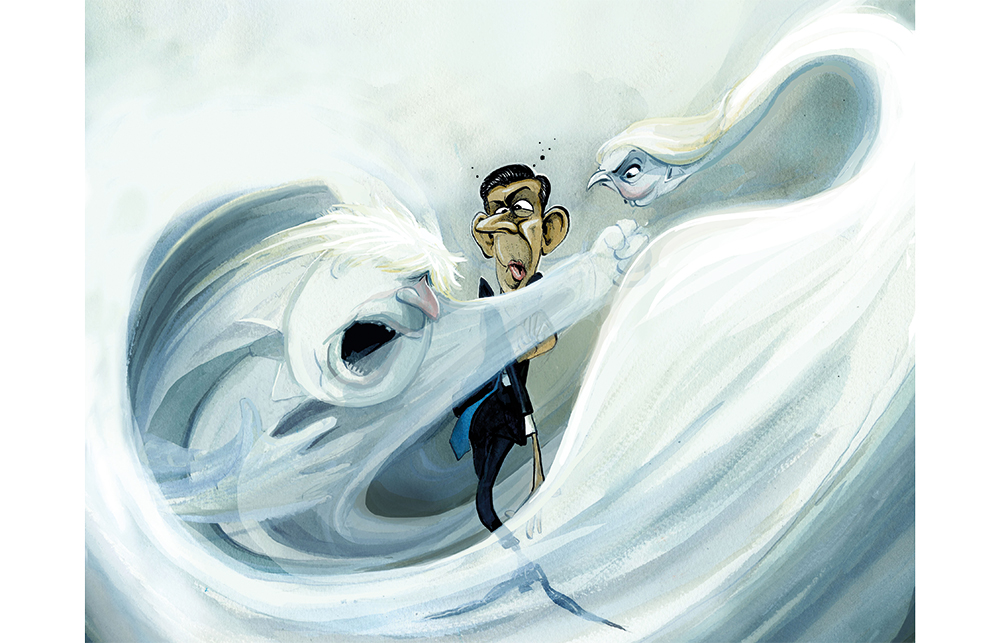When Rishi Sunak embarked on a reshuffle of his cabinet this week, he wanted to avoid the traditional scrum of cameras as MPs walked up to the No. 10 door. Instead, the Prime Minister called each minister to inform them of his shake-up of their Whitehall departments to create new ministries to reflect his priorities.
It was typical of the Sunak premiership. Where his predecessors would go out of their way to court press attention, this PM prefers to be low key. Early on, No. 10 viewed it as a success that the World Cup dominated the front pages over politics. The hope among Team Sunak is that this quieter approach will be welcomed by a public worn down by Tory psychodrama.
‘Boris is in submarine mode,’ says one Tory MP. ‘He is appearing from time to time to remind people he is around’
But politics abhors a vacuum. While Sunak may not be so interested in feeding the conversation, his two predecessors are. The announcement on the rewiring of Whitehall came after a weekend of extensive Liz Truss coverage following a 4,000-word op-ed in the Sunday Telegraph and her interview with The Spectator. While Truss says she supports Sunak, she paints him as a captive of a high-tax high-spend consensus. ‘It’s very Rishi to get the headlines back with a technical announcement,’ noted a senior minister.
Boris Johnson, too, is attempting a return to the stage. As Sunak welcomes President Zelensky on his first trip to the UK since Russia’s invasion, Johnson is positioning himself as Britain’s leading Ukraine hawk and urging Sunak to authorise the sending of not just tanks but fighter jets. With two very recent predecessors in the Commons, there are, it seems, three of them in this premiership.
Some of Sunak’s allies had thought Truss would stay in self-imposed exile, ashamed of her 49-day attempt at the premiership.








Comments
Join the debate for just £1 a month
Be part of the conversation with other Spectator readers by getting your first three months for £3.
UNLOCK ACCESS Just £1 a monthAlready a subscriber? Log in